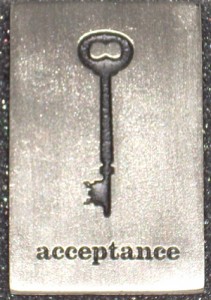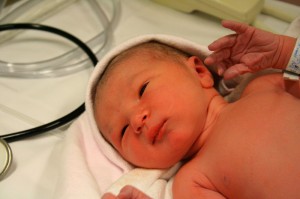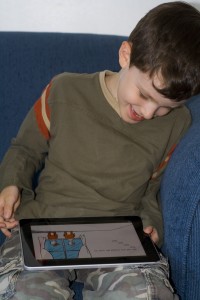It’s a scary thought, it truly is, but there are parents out there, far too many really, that simply can not accept that their child has Autism.
Either they’re in denial and refuse to believe the doctors, or they refuse to believe that their isn’t a cure to make their child how they want their child to be… or they just refuse to accept that their child is different… I feel so very bad for those children.
If you can’t accept me, who will?
A child’s only wish is to make their parents proud. To receive praise for those first steps, to get a treat for remembering to tidy up, for getting a shiny new bike for doing well in school… but when your parents see you as broken, defective…. less than you should be… what message does that send to a child?
Children grow up to be self confident because their parents instill that strong self worth in them. Children learn to be happy with themselves because their parents believe, through and through, that their child is wonderful exactly how they are.
Whether a parent tries to fake it or not is irrelevant because a child that can not be accepted by their parents will always feel they’re not wonderful, they’re not worthy of acceptance… that no one will ever like them for who they are.
Acceptance is not giving up
The biggest misconception is that accepting your child for who they are is the same thing as giving up and doing nothing to help them. That’s the furthest thing from the truth.
Only when you accept your child’s disorder can you begin to move forward in truly helping your child overcome, excel and maybe even turn that disorder into an advantage.
Many people who refuse to accept that their child has Autism will also refuse to start therapy, treatments and such… losing valuable time, if they ever do come around to accepting it all.
Also, acceptance in finally believing that your child is who they are, how they are and that they are simply always going to be different can help you to adjust your strategies and methods in that you recognize the need to incorporate your child’s wishes, behaviors, activities and “quirks” into the therapies/treatments that you’re trying to use.
Until you stop forcing change on your child and rather, accept the differences and work with your child’s differences, you will keep hitting road block after road block.
Therapy isn’t meant to make it so that your child is no longer autistic, it’s to help your child succeed with Autism, not despite it.
Acceptance leads to self respect, self confidence, self reliance
 A child without his or her parent’s acceptance will grow up with self doubt, no self value and will always feel like they don’t belong… like they’re broken.
A child without his or her parent’s acceptance will grow up with self doubt, no self value and will always feel like they don’t belong… like they’re broken.
With acceptance though, a child can grow up to feel that they are respected and have real value to themselves and others. With confidence, children will feel more bold, more brave and more willing to take the steps necessary to becoming independent.
If you look at your child like they’re broken… they may never learn to brush their teeth. But if you love them for who they are (yes, including the fact that they have Autism) and begin to work with your child, with the Autism, you will find a way to have them brushing their teeth and you’ll find that way together, because you’ll work together to do it.
Acceptance is such a powerful thing… it’s far more than just believing the diagnosis… it’s empowering, it’s life skill building, it’s a source of pride, it’s a confidence booster, it’s enlightening….
Acceptance is not giving up. Acceptance is not saying something you don’t really believe.
Acceptance is a place. It’s a moment in time. It’s a destination that will set you on an entirely new path, a beautiful path. It’s the end of negativity and the beginning of limitless possibilities.
Acceptance is the door that you need to open… step through and close behind you.
Move forward with your child, not against your child.
Your child can be perfect. All you have to do is believe it. Because they are.

















